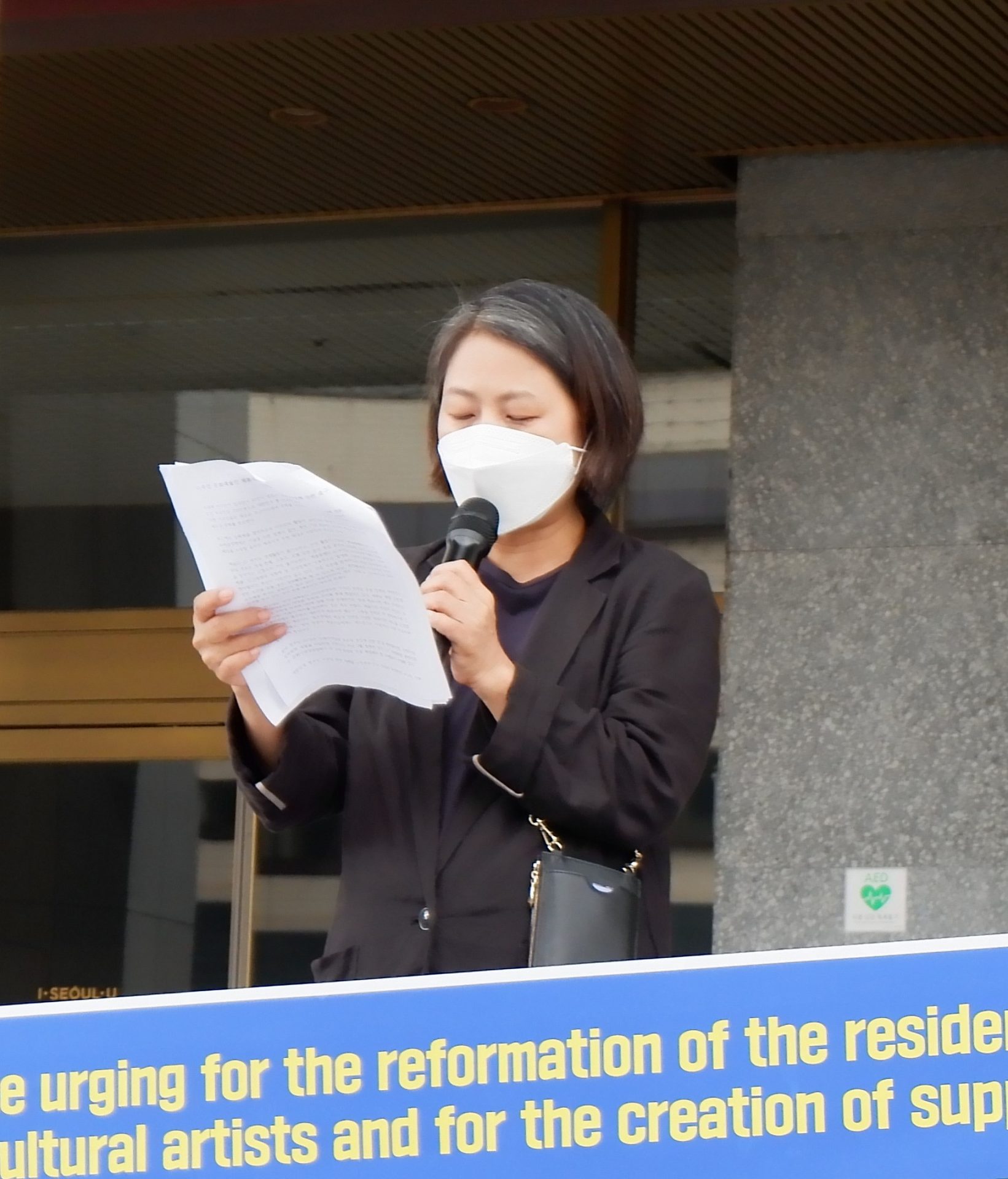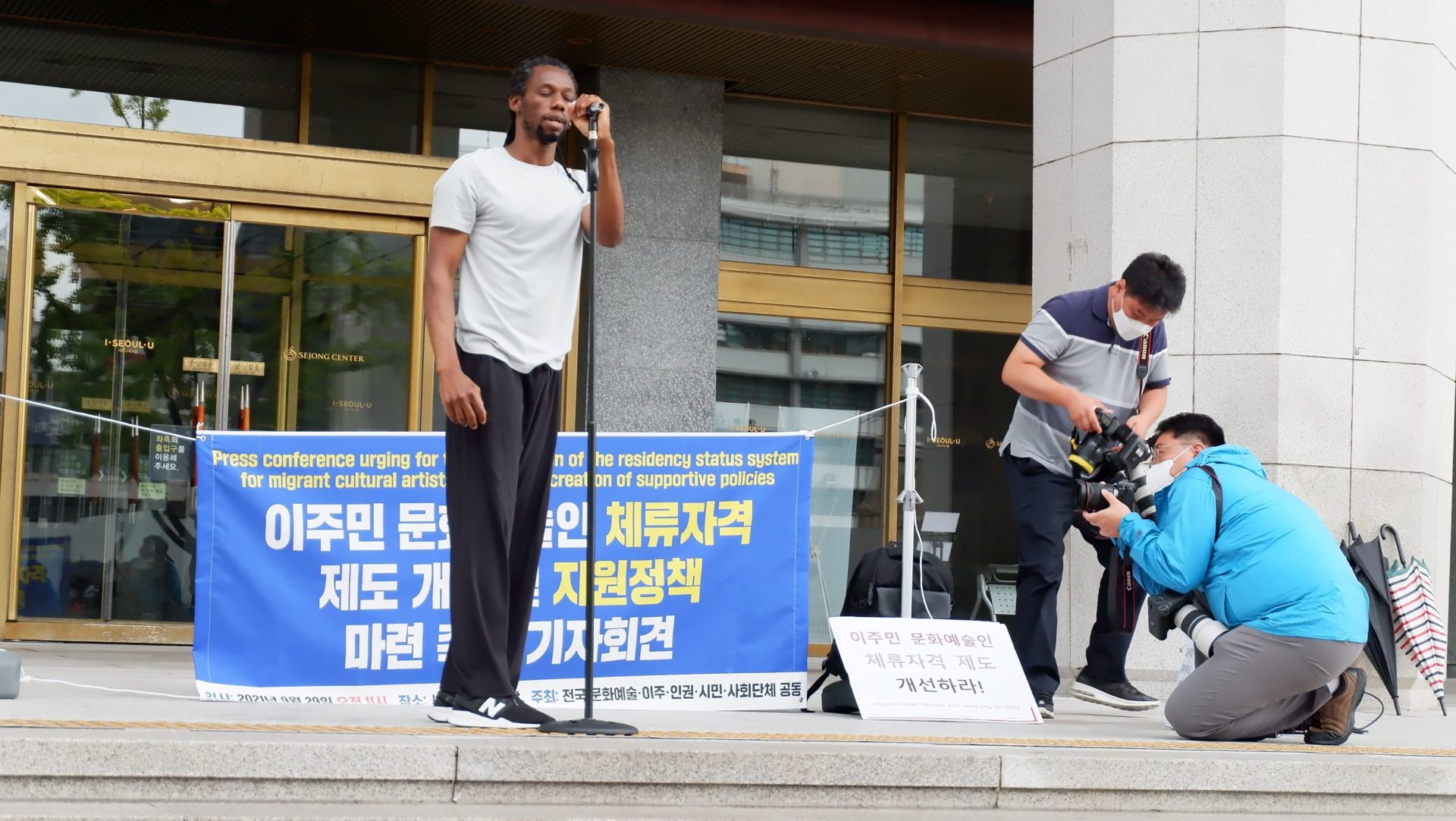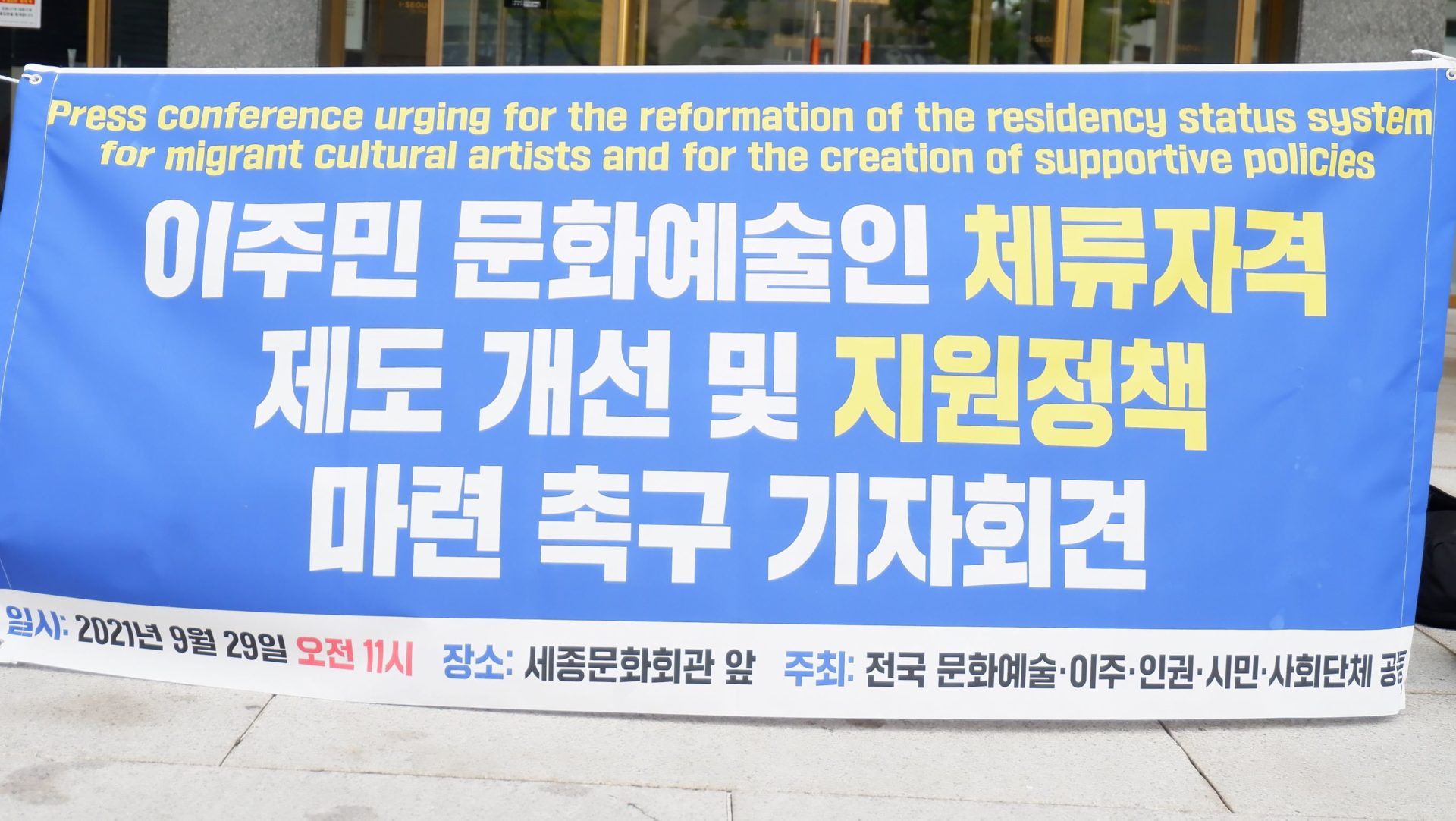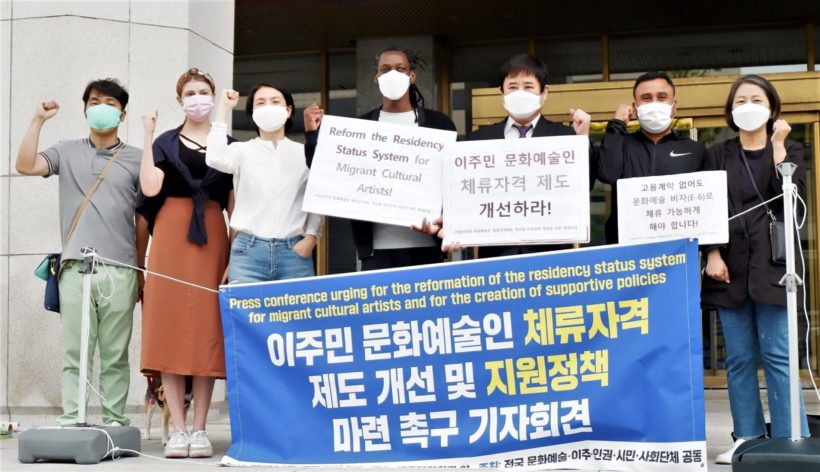Culture and the Arts
A committee for the Reformation of the Residency Status System for Migrant Cultural Artists held a press conference on 29 September 2021 in front of the Sejong Center for the Performing Arts, Gwanghwamun square in central Seoul, calling to the Korean government for the creation of supportive policies.

According to the committee press release statement, it has been over 30 years since immigrants have entered the country. The number of foreigners residing in Korea now is 2.5 million, or 5% of the total population. Immigrants from different roots and backgrounds, while spreading their own culture, acquire the culture of their new home and create a new culture. Recently, the activities of migrant creators of culture and art are increasing, but so far the government has not created any policies supporting them. These artists aren’t even given a legitimate avenue to guarantee their residence in the country as professional artists.
One of the organizers, Kyong Ju, Park, CEO of a social enterprise known as Salad Theater Company, a performance group composed of multinational migrant artists, and member of the Korean Arts Council has stated that the committee goal is to improve the system so that migrant artists living in the country can obtain a status of residence (visa). As the result, they can engage in cultural and artistic creative activities just like Koreans and receive equal treatment as artists, by implementing supportive policies for migrant artists.

The committee plans to deliver the statement directly to the relevant ministries, urging the resolution of this issue and the establishment of a system. As a positive sign on the government’s side, in February 2021, it established the Cultural Diversity Committee, where discussions about support for migrant artists have just begun to surface. Prior to the press conference date, the committee was collecting solidarity signatures for about a month and received 500 from different cultural arts, labor, human rights, and social movement organizations, groups and individuals. It used the collected signatures as an opportunity, the ‘solidarity meeting to improve the status of residence for immigrants, culture and artists and to create support policies’, urging the government for immediate reformation. So far, Korean society has treated migrants only as a labor force and did not regard them as creative members of culture and art. As Korean culture is gaining popularity around the world, the number of migrants in the country and are engaged in artistic activities over the past 10 years has been increasing.

The press conference calls for a reformed immigration system that provides stable residence for migrant artists which should be prioritized and forwarded its demands:
- The current artistic performance (E-6) visa, which relies on an employment contract, cannot solve the residency status problem of migrant cultural artists. In line with the uniqueness of the field of culture and art, the system should be reformed so that artistic activities can be continued even in independent positions (freelancers). The scope of activities should be expanded so that cultural and artistic activities in various fields are possible. In addition, appropriate measures should be prepared for international students who majored in culture and arts at Korean universities.
- A legal framework should be established for the protection of the human rights of migrant artists. The Korea Artist Welfare Foundation should equally support migrant artists as they do Korean artists.
- In the future, when establishing the 4th Basic Policy for Foreigners (’23~’27), policies should be designed in a way that attracts foreign talent and international students in the field of culture and arts to Korea. This can be done by categorizing ‘cultures and arts’ talents as outstanding talents.
- There is no research on culture and arts visas. It is necessary to establish immigration/culture and arts policies that reflect the needs of reality. To this end, it is necessary to closely examine the actual conditions and needs of immigrants and cultural artists. Recently, some entertainment agencies have been openly selling E-6 Visas, aiming to profit from illegal commission fees. This too should be seriously investigated. The government should promptly conduct a survey on the status of foreigners residing in the field of culture and art.












